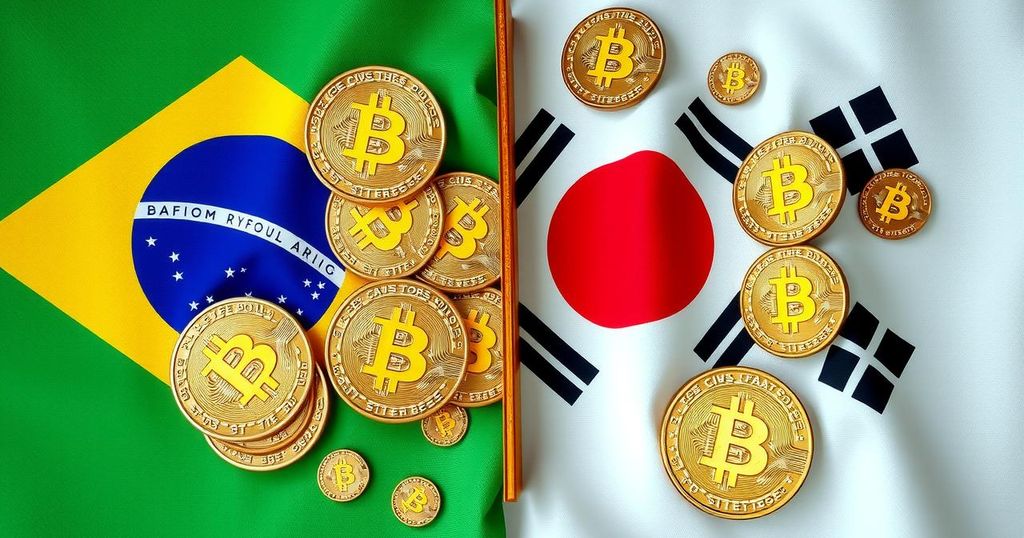Brazil is progressing towards allowing salary payments in Bitcoin to foster the fintech sector, while South Korea’s central bank has rejected Bitcoin for its foreign exchange reserves due to volatility concerns. The contrasting views on Bitcoin’s stability raise questions about its legitimacy as a financial asset.
The discourse surrounding Bitcoin regulation is intensifying globally, with Brazil and South Korea representing starkly different approaches. In Brazil, lawmakers are advocating for a bill allowing employees to receive up to 50% of their salary in Bitcoin, which is viewed as a strategy to stimulate the financial technology sector and attract crypto investment. This initiative draws from countries such as Japan, Switzerland, and Portugal, which have previously adopted similar measures.
Conversely, South Korea’s central bank, the Bank of Korea (BOK), has decisively rejected the notion of incorporating Bitcoin into its foreign exchange reserves. Citing concerns over the cryptocurrency’s volatility, the BOK indicated that it does not satisfy the International Monetary Fund’s standards for liquidity, market, and credit risk management. This decision underscores a broader skepticism regarding Bitcoin’s stability as a reserve asset.
The divergent stances of Brazil and South Korea highlight the ongoing global debate about Bitcoin’s legitimacy as a financial asset. Brazil’s potential regulatory changes could pave the way for increased acceptance of crypto payments among employers and employees alike. However, South Korea’s reluctance to embrace Bitcoin fully suggests that many governments remain cautious about its integration into traditional financial systems.
In conclusion, Brazil is moving towards regulating salary payments in Bitcoin, viewing it as an opportunity to enhance its financial technology landscape. In contrast, South Korea’s rejection of Bitcoin as a reserve asset reflects significant concerns regarding its volatility and stability. This bifurcation highlights the ongoing global debate over the legitimacy of cryptocurrencies as financial instruments. The future of Bitcoin remains uncertain as nations evaluate its role in their economies.
Original Source: www.tipranks.com






